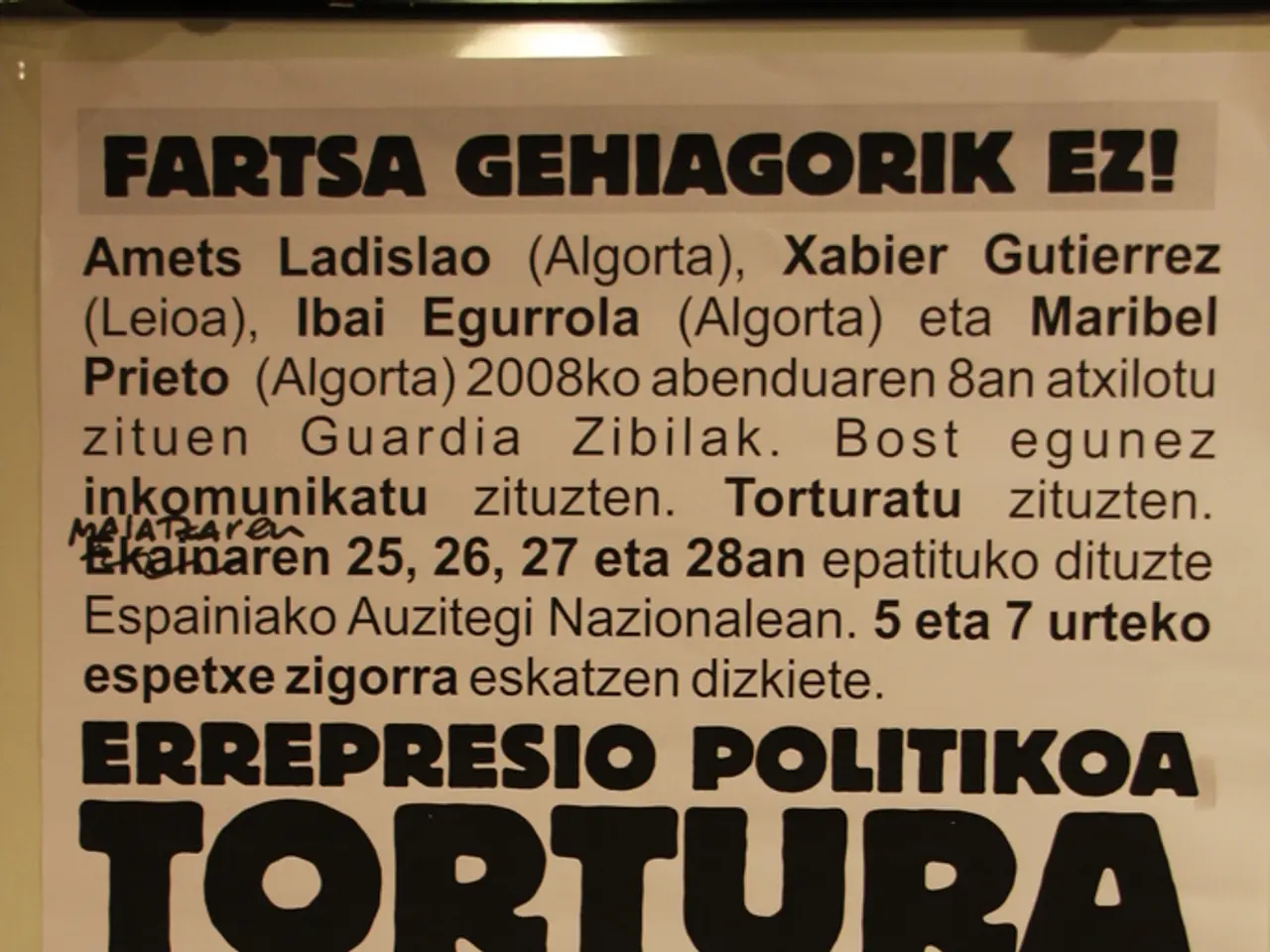Pending Sentencing for Alleged Attempted Coup: Bolsonaro Faces Trial in Brazil
In the heart of geopolitical developments, the United States has announced a 50% tariff on Brazilian goods as a response to the country's treatment of former president Jair Bolsonaro. This move comes amidst the final phase of Bolsonaro's trial, where he is accused of leading a coup d'état to remain in power after the 2022 elections.
Bolsonaro has been under house arrest since August, wearing an electronic ankle bracelet by court order, and has not attended the first sessions of the trial, citing health reasons. He is also charged with five crimes, including coup d'état, attempted violent abolition of the democratic state of law, armed criminal organization, damage to protected property, and qualified damage to public property.
The trial focuses on the power grab that took place in Brasilia in January 2023, just a week after the inauguration of Bolsonaro's successor, Luiz Inácio Lula da Silva. The prosecution's complaint places Bolsonaro at the centre of a plot that included a plan to assassinate Lula da Silva, his running mate, and Supreme Court Justice Alexandre de Moraes, who was also named as a victim of assassination plans in the charges against Bolsonaro.
The U.S. Department of the Treasury has sanctioned several judges of the Brazilian Supreme Court, including Alexandre de Moraes, for what they qualify as a "politicized judicial process" and a "repressive campaign of censorship and arbitrary detentions that violate human rights". However, the judges' decision in Bolsonaro's trial has not been influenced by the U.S. threats, and polls show Lula da Silva's numbers improving.
The challenge for Bolsonarism, the political movement supporting Bolsonaro, is to identify who's more competitive to run against Lula da Silva in the next elections, scheduled for 2026, as the movement lacks a clear leader. Despite Bolsonaro's ineligibility and being accused of various crimes, he still enjoys the loyalty of nearly a third of the population who believe he's a victim of political persecution.
Carolina Botelho, a Brazilian political scientist, believes that the U.S. is pursuing a geo-political agenda with the tariff policy, aiming to weaken the BRICS. Guilherme Casaroes, a professor of Brazilian Studies, on the other hand, believes that the U.S. has launched an unprecedented attack on Brazil's economy and democratic institutions in support of Bolsonaro.
Eduardo Bolsonaro, a deputy and Bolsonaro's son living in the U.S., thought U.S. pressure could force Brazil's judicial system to reverse Bolsonaro's situation, but that hasn't happened. Marco Rubio has stated that the judicial robe does not protect judges from sanctions. Since last week, Bolsonaro is under "permanent surveillance" for "flight risk" after investigators found a "draft" of a request for political asylum in Argentina.
The total penalties for the crimes approximate 40 years in prison, but Bolsonaro's legal team is working to appeal the decision. As the trial unfolds, the world watches with bated breath, as the future of Brazil's democracy hangs in the balance.
Read also:
- ICE directed to enhance detention conditions following NYC immigrants' allegations of maltreatment
- Israeli finance minister issues warnings about potential annexation of West Bank territories
- United States faces rebuttal from South Africa over allegedly deceitful human rights report and assertions of land expropriation
- Accident at Rodalben Results in Injuries; Geoskop Area near Kusel Affected After Stormy Weather








